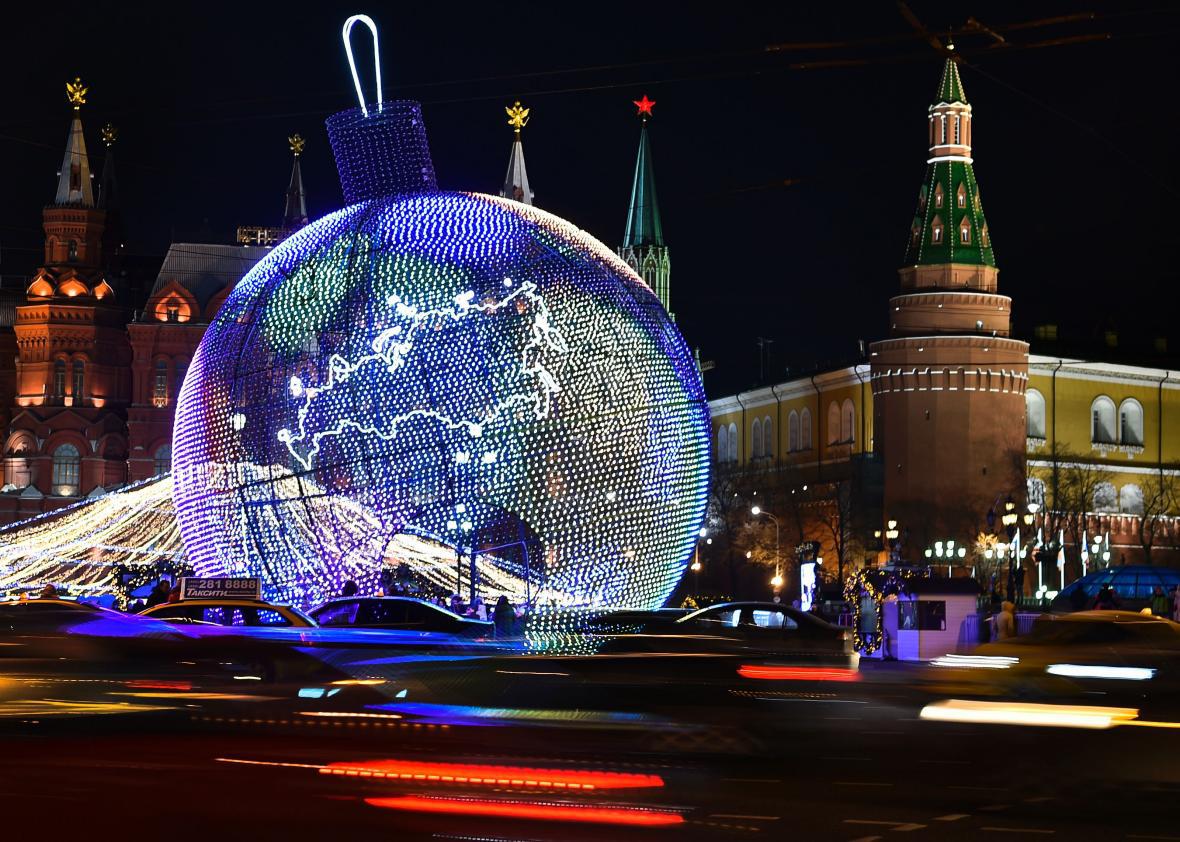Growing up as a first-generation Russian Jew in the United States, I always felt hopelessly stuck between holidays during the winter months. All my friends had one thing or the other—Christmas or Hanukkah—while I had a third thing that made no sense whatsoever: New Year’s Eve, the most important family holiday of the season for Russians all over the world.
Basically, it was a secular version of Christmas held six days after the fact. There was a Santa Claus-like figure named Father Frost who brought presents, a fir tree decorated with ornaments, a massive dinner during which relatives would gather and bask in each other’s love. The tradition is a relic of state-mandated atheism in the Soviet Union: According to the New York Times, the rituals associated with it were banned entirely after the Bolsheviks seized power in 1917, but were brought back by Stalin in 1935, in the form of “Noviy God,” because people missed them too much.
As a teenager, the whole thing just made me feel like a weirdo. In the eyes of my Jewish friends, the big green tree in my living room made me a traitor to my people, and everybody else couldn’t understand why I’d choose to spend the biggest party night of the year with my family eating cabbage.
Now that I’m older and married to someone who invites me to Christmas every year, my hang-ups regarding Noviy God have given way to a happy affection: Not only do I get to spend less money on airfare to see my family during the holidays, but I’ve also become sensitive to the ways in which Russian New Year’s Eve is different from, and arguably even superior to, the Christian holiday that inspired it.
For starters, Russian New Year’s Eve involves exchanging presents at midnight instead of in the morning. Sure, it is fun for children to wake up first thing on Christmas and unwrap their gifts, but I am not a child, and neither are you. In my experience at least, opening presents while drunk and happy is better than doing so when you’re sleepy and still recovering from last night’s nightmares.
The second thing that’s good about Russian New Year’s Eve is the food. As someone who constitutionally hates talking about how delicious things taste and luxuriating in the kitschy details of cultural cooking practices—blame it on my Soviet upbringing—I decline to go into this in any depth. But this NPR story provides a pretty accurate picture of the spread you can expect at a Russian home on New Year’s. Herring, dumplings, salads with peas in them—it’s all better than ham, and the extreme level of variety means that if you can get a big enough group together, you can get it done pretty easily via potluck.
Ultimately, though, comparing Russian New Year’s Eve to Christmas is beside the point. The real question is whether it’s better than American New Year’s Eve, and when you consider the stress and horror that comes with finding the exact right place to party, the exact right person to stand next to when the ball drops, and the exact right way to avoid hordes of blasted strangers, the answer is simple. While there’s obviously something to be said for going wild with your friends, it’s just as obvious that one can do it in the comfort of one’s home. The most fun night of the year doesn’t have to involve dancing and drugs, after all; it can, and arguably should, also involve sitting and eating and joking around.
It goes without saying that I am not as young as I used to be, when the siren song of American New Year’s Eve made me jealous instead of exhausted. It’s from that perspective that I come before you now to suggest that this Dec. 31, instead of busting out the novelty sunglasses and heading for Times Square or taking recreational Adderall at Club Marquee, gather a group of your closest friends and relatives, set the table at home, and give Russian New Year’s a whirl.
Let me know how it goes! This year I decided to rent an Airbnb in Mexico.
